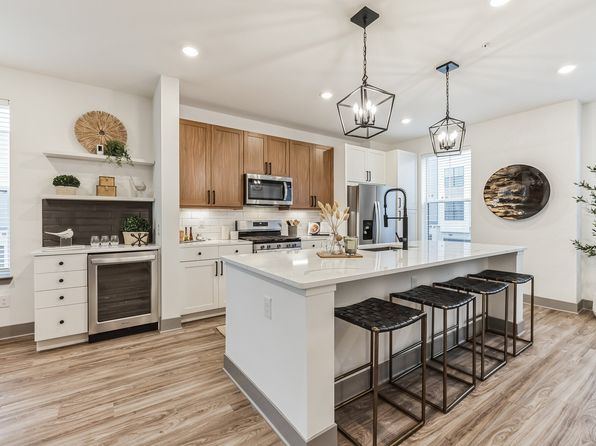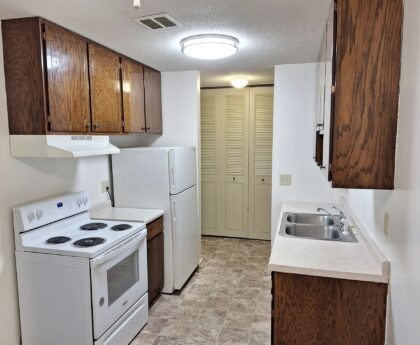Woodbury Rentals with Utilities Included
Is it Worth the Cost? Pros and Cons. Things to Consider.
Woodbury rentals with utilities included seem like a dream. No more worrying about fluctuating electricity bills, or surprise water charges. But is it really worth the extra cash? Let's dive in.
Is It Worth the Cost?
Many renters, me included, are drawn to the convenience of utility-included leases. Imagine never having to stress about energy costs; peace of mind, right? The biggest factor to decide if it is worth the cost, is price comparison. Compare costs. That's your homework. Compare rental with utilities and see if your money is safe! Compare to a normal rental, calculate costs, and do the math! This saves time. That makes your money grow. Does it truly save money?
Pros:
- Simplicity: No more utility bills to track or pay. That’s great! You feel better.
- Predictability: Rent is fixed; no surprises.
- Potentially Lower Monthly Outgo: Savings add up in budget control. Check now. See if it’s worthy for you! A chance for your pockets. This is one great step!
Cons:
- Higher Rent: Expect to pay more overall compared to similar places without utilities included.
- Lack of Control: You lose direct control of utility management and possibly conservation options (not your area though) which may impact your spending
- Unclear Pricing Structure: Sometimes prices are vague (unclear), check with the landlord. Understand what your payment cover (so ask questions, be wise to get answers. And this matters greatly.)
Things to Consider

Source: apartmenthomeliving.com
A well-planned calculation must go first. A plan always helps.
- Utility Usage Patterns: Are your usage costs high or low compared to a neighbour, for a simple calculation and compare the averages you'll be aware. What if you’re a good steward of the environment, saving some utilities by smart living. A nice thing, agree? So calculate and understand. Be wise! Don't just pay, understand the utility charges (and know which is for you)!
- Apartment Type: Bigger place means more likely to consume greater utility amounts; you've gotta decide carefully, with thought.
- Other Costs: Will higher rent impact other life budget plans or have an adverse effect? Carefully review. Compare. Make sure the choice works perfectly for your needs (make sure).
My Experience:
When I was living in California I once had a property which had utility charges added onto the rent! At first I thought the price was reasonable, until I calculated it for months or years ahead and it impacted me in a certain way – it was very much noticeable. After the calculation (my math skills being what they are) it showed it was indeed worth the consideration when planning for a financial future or plan (I have a lot of personal experience). Ultimately, understanding the pros and cons gives a much better picture of potential expenses to consider. I will use these to decide for the next renting I am seeking! Be wise about your money – know about how your cash moves to know if its worthwhile or not!.
In short, deciding if utilities-included Woodbury rentals are worthwhile is based entirely on you. Do a cost comparison. And also your unique situation. A wise decision for you, not the general!
Cost Comparison
Cost comparison is key for any major purchase, be it a house, car, or even a phone. It's like shopping, but with a deeper understanding of needs. Comparing prices isn't just about finding the cheapest thing; it's about getting the best value.
- What to compare? Rent, utilities, maintenance, and extra fees.
- Look for deals. Discounts, rebates, coupons, bundle offers all help lower the price.
- Always consider the fine print. Small print can reveal hidden charges, hidden costs, late fee policies.
How to Compare Different Options
- Make a table or spreadsheet. Organize different options, services, pricing in rows and columns.
- Calculate total costs. Include all expenses; it's not only the monthly payment, it's also monthly, quarterly, yearly extras.
- Consider long-term costs. Compare deals over time, even the best deal for few months might turn out the worst one after few years.
- Analyze reputation. Look at reviews, complaints about a vendor or product; even something costing cheap, might cause big headaches in the future!
- Calculate total cost over the lifetime of purchase.
Finding a Rental
Finding a rental can be stressful. It's like looking for your new home! But don't panic, here's how:
Crucial Steps for Finding a Perfect Rental
- Check your budget. Be honest about how much you can afford; rent, utilities, groceries… Everything!
- Determine your needs. Location, space, features – write down these key things you are looking for; room numbers, pets allowance, distance from amenities!
- Research areas and property types. Websites are super helpful, explore neighbourhoods and get feel for local amenities!
- Start looking online. There are so many amazing online places for renting houses, studios, offices or flats; be prepared to start contacting lots of rentals at first!
- Go for viewings and contact property managers. Meeting properties face-to-face and understand what you are getting in return. Be clear about your questions. Ask everything!
- Pay the required upfront fees (if any). Every rental is a little different; there are no two things equal.
Lease Agreements
Lease agreements are essential documents. It's the key that locks down the deal.
Review carefully what is expected; know exactly what you agree to!
- Read before signing. Mistakes can be costly.
- Clarify all terms. Anything uncertain is a cause for discussion and clarifications!
- Important Clauses
- Rent amounts and due dates.
- Security deposits; who owns your deposit?
- Early termination clauses.
- Restrictions on changes/modifications; changes within the property.
Understanding these important clauses can keep a tenant secure and prevent any major problems or conflicts during and after tenancy period.
What would be in your to-do list after finding a perfect place? Do you want to make extra notes on these specific things?
Utilities Included
Utilities included in your rent are like having an included meal at a fancy restaurant, great deal for your monthly spending, plus you know it's already covered.
- How to determine utilities? Check rental listing! What utilities are included (water, gas, electricity)?
- Ask! Be specific and know the price you pay every month. Understand hidden clauses; ask about their rules and regulations. Be certain, it might vary with rental terms!
Review before signing. Check if the listed price is fair.
5 Advantages of Utility-Included Rentals
Utility-included rentals are super convenient. No more headaches tracking down energy bills, trying to estimate consumption, or argue over high usage fees with your landlord.
- Peace of Mind: Forget the stress, you already know what's included, so you just relax, living your best life.
- Predictable Costs: You know exactly how much rent will be every month. No surprises!
- Easy Budgeting: Budgeting becomes easier; one single line in your rent section. Less confusion, right?
- Time Savings: Less paperwork, less energy chasing down issues or wondering. Pure ease and convenience.
- Attractive to Tenants: Perfect for busy people, students, and anyone looking for no surprises, just ease of living.
7 Disadvantages to Consider
- Higher initial cost: Often, the "included" items might slightly increase your rent price over a regular rental. Be smart when choosing.
- Limited Control: You don't really have a choice regarding maintenance and any adjustments. Your only chance is when signing the lease.
- Varying Utility Rates: What if you decide to live near a much warmer climate and use more air conditioning during those months? Might increase more, so do calculations!
- Unpredictable Increase of Utilities: What if energy costs are very unpredictable? These are tough factors to deal with when looking at utility-included rentals.
- Landlord Maintenance Concerns: Do you have trust with the landlord for the utility maintenance, or is it likely they may delay actions on your needs or just do them slowly or sometimes fail to do at all? Good check needed before choosing such options.
- No flexibility in personal adjustments for specific utility need: Do you think about that all utilities for yourself or a community can be adjusted in ways that work well, depending on your climate, lifestyle? If not, utility-included might not be the best choice.
- Energy Efficiency Implications: You won't care about your personal contribution of conserving the electricity bills, gas bills or water. Could affect you if they don't run a maintenance of your own on specific items in case they suddenly stop working in case of sudden breakdown of utilities (eg., appliances breaking suddenly)
3 Factors Impacting Cost
- Location: Are utility costs significantly high where you choose to rent? That is the big question, and location surely affect prices as well as cost factors.
- Building Type: A small efficiency flat with a low roof costs significantly different from an expensive skyscraper or a home with several large apartments, right? The utility charges would be different!
- Utility Prices: Look into city and neighborhood costs if needed. Some areas have significantly higher utilities (because of climate, maybe location, etc…). You need to do research!
What's Included (Utilities)
- Electricity: This should cover power from sockets, wall chargers etc. to use.
- Gas: Think cooking and possibly heating/water-heating systems in the home or the common areas you might use in the apartment building.
- Water: Basic usage like baths and showers. Any excess consumption would mean the additional charge is possible on the part of the user/renter, which might still be affordable, but definitely discuss it with your landlord/owner prior signing any agreements.
- Internet/WiFi (sometimes): Increasingly popular with some rentals but is still likely to come with an extra cost; ask!
- Heat & Cooling (sometimes): Think if you'll ever need additional payments for excessive heating and cooling during extreme temperatures of the climate region where the property is located in. You won't need any charges if you never do, though.
These are just basic components of utility bills included, of course, other items may be discussed case by case.

Source: apartments.com
Saving Money on Rent?
Finding a place to live can feel like a battle, especially when money is tight. Rent costs keep going up. It's stressful! But you can definitely save on rent, trust me. Here's how:
Hidden Costs?
Rent isn't always the whole story. Hidden costs creep up on you, sneaking into your budget like pesky rodents. Things like:
- Application fees
- Security deposits (which can be huge!)
- Broker fees (watch out, they add up)
- Moving expenses – moving truck fees
- Utility connections (can be substantial if done yourself)
- Late fees
- Cleaning or repair fees
Be extra vigilant on what's really included. Are you prepared for them? These added extras quickly eat into your budget and, trust me, you want to know everything up front.
Is There Value in Added Services?
Added services sound fantastic:
- Free parking
- A pool
- Gym access
But sometimes, the value doesn't outweigh the price increase. It’s okay to weigh them.
Carefully calculate.
Is it actually worth spending an extra $50 per month for the pool? Some benefits may seem worth it, while others seem just for show. Do they match with your needs and lifestyle?
Negotiating a Deal
Don't just hand over your money blindly. Rent negotiations are often possible. Landlords, it happens.
- Do your research: Know current market rates in your area. It is your power.
- Be confident: Landlords want tenants. So make it work for you.
- Highlight your advantages: Mention your great payment history and lease commitment. This demonstrates you're a responsible tenant and can make your landlord more comfortable. Be respectful to landlord requests for documents too, or don't give your money for that kind of a deal, and that’s the choice you need to make.
- Be willing to walk away: This shows you're serious. A landlord might just consider your viewpoint.

Source: forrent.com
Good communication with the landlord and honesty, that matters, can result in savings and reduce pressure to sign that rent contract. Good Luck!
Is Your Income Enough?
Is your income enough? It's a big question. Frankly, there's no single answer, it depends on your lifestyle, your expenses, and your dreams. Are you paying bills on time? Can you save for a rainy day? That's the core of it all.
Financial Analysis
First, list out all your income sources. Include your main salary, side hustles, and any other income. Next, make a detailed list of all expenses. This includes rent, food, transportation, entertainment, and more. Be honest! Don't miss tiny details; a cup of coffee daily adds up! Compare income and expenses. If your income is higher, great. If not, look for ways to cut costs, or increase income. Consider creating a budget for managing finances better. Track these things! Tracking shows you areas where you need to change. It's math, really, comparing your money flows! Analyze that gap. The money needs, should your lifestyle adjust
Alternatives
Sometimes, more income is the solution. Explore extra sources of income. This could be part-time jobs, freelance work, or investments. Some easy alternatives to cut costs involve moving in with relatives to reduce costs! Look for better places! The goal is finding options to make a more appropriate living! Some simple, good alternative ways to grow income can work very well. Be honest, check expenses. This shows money gaps that alternatives fill.
Tips for Choosing

Source: zillowstatic.com
When considering extra income sources, look at skills and interests. Think, can you do something more with that hobby? Also look at the demand and the rate! Be logical here. Do a bit of research and planning, consider a course. See what might work for you and match your goals. Research rates. See if its something to continue. Is this the right move? Don't do anything out of instinct. Evaluate skillsets
Finding a Good Landlord
Choosing a landlord is vital! Talk to neighbors and local residents. Reviews online show history of a place, so do the homework! Be mindful location, facilities and quality. Be clear, concise and ask a lot of questions with a lawyer! Be aware of hidden costs, like additional fees or late fees, which may reduce monthly income. You don't need it, do you?! Get it right at the start. Ask questions regarding maintenance issues, policies. That way, you're less at risk! The goal? Finding someone trustworthy, not trouble, is crucial.
Avoiding Scams
Scams are everywhere, lurking online and offline, disguised as opportunities, sympathy requests, or even urgent alerts. It's crucial to recognize the signs. Knowing how to avoid them can protect your wallet, and more importantly, your peace of mind.
Spotting the Red Flags
Scams use psychological tricks to get you to act quickly and impulsively. Watch out for:
- Too-good-to-be-true offers: A free cruise? A lottery win you didn't enter? Be wary! Legitimate deals have ground rules and restrictions, these are suspicious. This could also be phishing scams where fraudsters want personal information and bank accounts.
- Unnecessary urgency: "Limited time offer!" "Act now!" Scammers exploit the feeling of missing out. This rush tactic is bad news, a danger sign. Ask yourself if you're calm enough to think the offer through without feeling compelled.
- Unexpected requests: Are you getting unusual emails from people you barely know, asking for money or personal details? Never send money to unknown people. That includes even distant relatives; get background knowledge yourself before acting on any email, letter, or message.
- Vague promises: The promise is vague, mysterious and nonsensical. "Investing in Bitcoin to get double of it" sounds dubious and is generally a waste of money. No deal can give something from nothing for nothing, or for cheap, fast. Legitimate businesses, even online traders, will outline their methods and goals in straightforward language.
Safeguarding Your Information
Personal details are like gold to scammers; they can be sold on dark webs, and could become your financial nightmare. Always use reliable, trusted sources, not a suspicious-looking source, for deals. The tips to safeguarding are like a security guide!
-
Verify websites before entering details: Examine the site's security. A simple HTTPS, not just HTTP, makes a big difference in preventing some problems. Look for a company's security information for their web or software. Verify and cross-check every single suspicious website using external security tools and search engines to see if the website is well-regarded, authentic.
-
Be cautious about clicking links: Some links could lead to dangerous or malicious websites. Before you click, hover over the link to see the actual address and confirm that the link actually leads where it claims. Never open or trust links that sound ambiguous, confusing, suspicious or risky.
-
Protect your financial accounts: Strengthen your financial account settings with complex, secure passwords, and never disclose your personal login details in insecure circumstances.

Source: rentcafe.com
Preventing Financial Losses
Scams aren't just about identity theft; they're a threat to your finances. Take extra caution; scams can damage finances deeply!
-
Use strong passwords and change them regularly: No two logins should share a single, predictable password. Make them unique, hard to guess and impossible to know, ideally unique, and never reuse the same password over many applications and sites!
-
Report scams promptly: Keep records of every scam encounter. Don't try and fix the issue yourself and seek immediate advice, professional support. A quick report of the situation can prevent problems.
-
Verify the legitimacy of businesses before making purchases: Verify from various sources (news, credible websites, financial publications, bank professionals, friends and family). Use trusted websites that provide financial resources and news.
-
Stay aware of latest trends in scams: Scams continuously adapt. Learn about new ones, avoid outdated and typical scam traps. A little bit of caution always protects against problems and future surprises.


